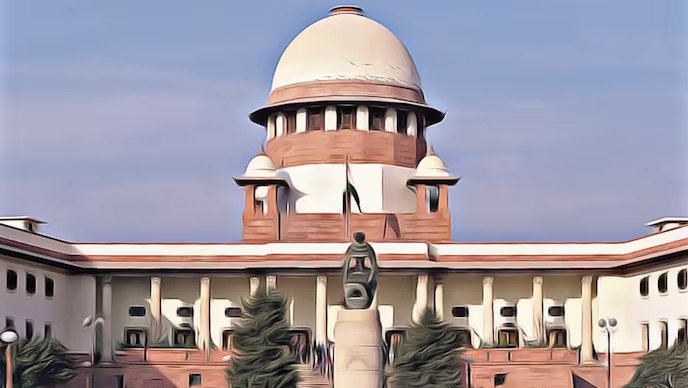Malay Kumar Basu, J.@mdashThis is an application u/s 482, Cr.P.C. filed by one Bahauddin Ahmed against S.M. Zafrullah and the State of West Bengal for quashing of the proceeding being the Complaint Case No. C-2378/98 pending before the Court of Chief Judicial Magistrate, 24 Parganas (South). The relevant facts leading to this application are as follows. S.N. Zafrullah, the O.P. No. 1 of this case lodged a complaint u/s 200, Cr.P.C. before the Chief Judicial Magistrate, 24 Parganas (South) against this petitioner (i.e. the accused of the case) alleging therein that the O.P. No. 1 gave him a sum of Rs. 70,000/- by way of loan on 20.4.1998 on his assurance that he would repay the same as and when asked for. The petitioner-accused in discharge of his liability issued a cheque bearing No. 147492 dated 20.6.1998 for a sum of Rs. 70,000/- drawn on Allahabad Bank, Hazra Road Branch, Calcutta in favour of the O.P. No. 1. The O.P. No. 1 then, placed that cheque before his Banker namely Oriental Bank of Commerce on 20.6.1998 but the said cheque was dishonoured and returned to him on 25.6.1998. Then the O.P. No. 1 sent an Advocate''s letter dated 30.6.1998 to the petitioner-accused which was received by him on 4.7.1998. Thereafter the O.P. No. 1 waited for fifteen days for payment of that amount of Rs. 70,000/- but the petitioner-accused did not make any payment and hence the O.P. No. 1 instituted the said complaint. The learned Chief Judicial Magistrate took cognizance of an offence u/s 138 of the Negotiable Instruments Act and issued summons directing the petitioner-accused to appear before him on 18.9.1998.
2. According to the petitioner the O.P. No. 1 filed a false complaint to harass him. His case is that when this petitioner proposed to form a partnership firm and sought money from the O.P., the O.P. advanced a sum of Rs. 70,000/- to him towards his share in the initial capital but ultimately the idea of the partnership firm became a failure and then the petitioner issued a post-dated cheque in favour of the O.P. No. 1 being cheque No. 147492 dated 20.6.1998 on 21.5.1998 by way of repayment of the amount which he (O.P. No. 1) gave to the petitioner-accused. Before doing so, there was a discussion between them and also a verbal agreement that if, when the cheque will be presented to the Banker, the balance in the petitioner''s account falls short of the amount of the cheque then the petitioner would arrange for payment of the said sum in suitable instalments in cash. When the petitioner came to know that the credit balance in his account would not cover the cheque amount on the due date, he rushed to the O.P. and paid him in cash an amount of Rs. 25,000/- and the same was duly accepted by the O.P. No. 1 and acknowledged. Despite his receipt of this amount in cash out of the total cheque amount of Rs. 70,000/- the O.P. deliberately presented the cheque before the Banker only to harass and blackmail the petitioner-accused, although the O.P. No. 1 promised that he would not produce the same before the Banker and would return the cheque to the petitioner-accused. Thereafter on 30.6.1998 the petitioner received a notice from the O.P.''s Advocate wherein he was asked to make payment of the entire cheque amount of Rs. 70,000/-thereby deliberately suppressing that he had already received a sum of Rs. 25,000/- in cash on 19.6.1998. The petitioner also sent a sum of Rs. 5,000/- by money order requesting him to return the cheque as early as possible and undertaking to pay the balance amount as soon as possible. But the O.P. No. 1 refused to accept the money order and the same returned to the petitioner on 20.9.1998 with a postal note "not claimed". The contention of the petitioner is that the amount mentioned in the demand notice far exceeded the total amount of loan given to the petitioner and when thus the demand is not in accordance with law the consequent nonpayment cannot give rise to any cause of action in terms of Section 138(1) of the Negotiable Instruments Act and since there was no cause of action, no complaint could be made in accordance with Section 142(b) of the said Act and as such the taking of cognizance in such facts and circumstances cannot be tenable under the law.
3. From the averment in the petition it is thus admitted that the petitioner received a sum of Rs. 70,000/- from O.P. No. 1 by way of loan and he is liable to repay the same. According to the settled position of law, a criminal proceeding is liable to be quashed only when the very allegations in the complaint taken at their face value and accepted in their entirety do not disclose the ingredients of any offence. Because, in such a case no question of appreciating evidence arises. But, in exercise of the jurisdiction u/s 482, Cr.P.C. the High Court cannot embark upon an enquiry as to whether the merits of the case are liable to or not to suffer any set back due to the defence case being found to be worthy of reliance [vide 1990 Cri. L.J. 320 (SC)],
4. In the present case, on a perusal of the averments in the complaint lodged before Court of Chief Judicial Magistrate it appears that they, as they stand, constitute the ingredients of an offence u/s 138 of Negotiable Instruments Act. Accordingly, after taking the initial deposition of the complainant the learned Chief Judicial Magistrate being satisfied about a prima facie case having been made out, issued summons upon the accused to appear before this Court. Thereafter in response to that the accused (the present-petitioner) entered his appearance in that Court and the learned Magistrate proceeded to hear the case according to law. He examined the accused u/s 251, Cr.P.C. by staling before him the substance of the accusation against him of an offence u/s 138 of the Negotiable Instruments Act and the accused pleaded not guilty and claimed to be tried. Accordingly, the learned Magistrate fixed a date for prosecution evidence. At this stage, the accused has come forward with the present petition with a prayer for quashing the entire criminal proceeding on the grounds already mentioned above.
5. It is to be observed that in view of the established legal principles cited above, there is absolutely no scope for putting an end to this criminal prosecution by quashing the proceeding at this initial stage when, as I have noted above, the allegations in the complaint clearly disclose the ingredients of the offence u/s 138 of the Negotiable Instruments Act. The pleas which the petitioner-accused has raised in the present case before the High Court namely, that out of the entire amount of loan, a sum of Rs. 25,000/- has already been paid by him or that there was a verbal agreement between the parties to the effect that the accused-petitioner would be given a chance to repay the amount in instalments by cash are not to be decided by this Court in a proceeding like this. The High Court cannot be turned into a Forum for holding enquiries into such questions. The averments in the complaint having primarily and prima facie disclosed the ingredients of a particular offence, the law should be allowed to take its own course and the powers and functions of the Magisterial Courts should not be surreptitiously taken away by the High Court and the normal provisions of the procedural law should be given a free run. In this case the learned Magistrate having taken the plea of the accused u/s 251, Cr.P.C. and having fixed a date for prosecution evidence in order to determine on the basis thereof whether the charge levelled against the accused has been proved, this Court should refrain from giving a premature decision by unjustifiably usurping the functions of the trial Court. This will be more so in our instant case particularly in view of the admission of the accused-petitioner that he took the loan from the opposite parties-complainant and the cheque which he issued in favour of the complainant for the purpose of repayment of the same was dishonoured due to insufficiency of fund in his Bank account.
6. In the premises, I find no merit in the present petition and it is dismissed. The impugned order of the learned Chief Judicial Magistrate is upheld and the trial of the case do proceed expeditiously.

